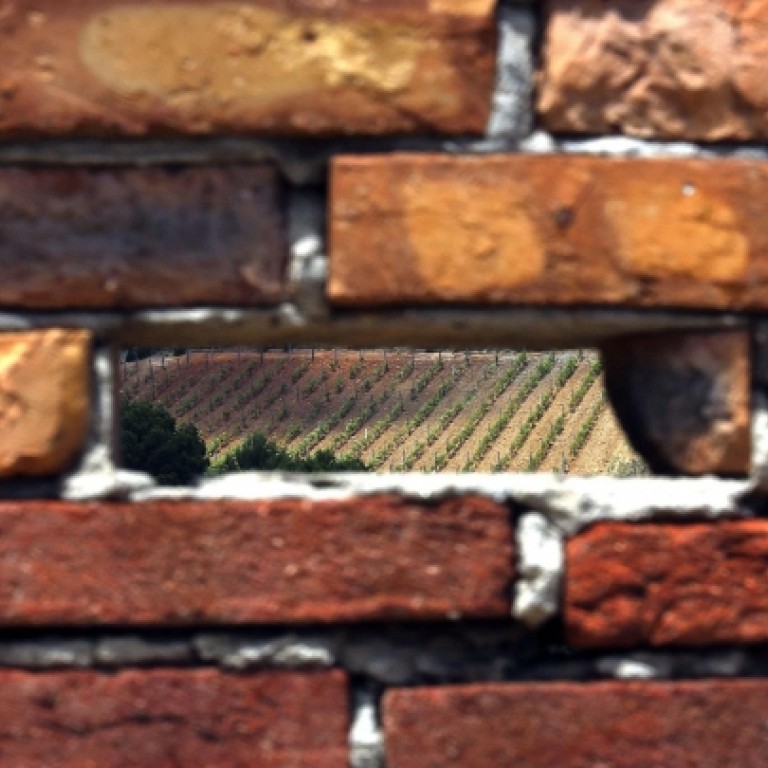
Italian convict island is home to growing concern
Prison off Tuscany offers hardened criminals a chance at rehabilitation through tending vineyard that sells wine to top restaurants
High on a hillside overlooking the azure sea on a small Mediterranean island, two brawny men toil under the sun in a vineyard that has just released a €50 (HK$515) wine destined for the tables of top restaurants.
This is not an exclusive wine estate or retreat for the rich, despite its beauty. It's actually home to men serving long sentences for some of Italy's most notorious crimes, on Gorgona, an island named after sisters in Greek mythology with snakes for hair.

Gorgona, the smallest of the Tuscan archipelago that also includes Elba, where Napoleon was incarcerated, is home to a project to rehabilitate hardened criminals through agriculture.
The island, an isolated refuge for monks for 1,500 years and a penal colony since 1869, has just produced 2,700 bottles of a crisp white wine called Gorgona, with the help of a 700-year-old Italian wine dynasty. Among the buyers is a restaurant in Florence with three Michelin stars.
Gorgona's 40 inmates, many of them convicted of murder, including a notorious contract killing, also produce high-quality pork, vegetables, chickens, olive oil and cheese.
The two men on the hillside are serving long terms for murder and won transfer to Gorgona after years in other jails.
There is a long waiting list for entry to the island, a highly desirable location compared with most of Italy's chronically overcrowded jails. Unlike them, Gorgona is at about half its capacity.
"When I come up here in the morning I am struck by the peace. The time does not weigh on you. It is a different mentality here," said one of them, Brian Baldissin, a tattooed and muscular 30-year-old from the northern Veneto region, whose older brother is also in the jail.
His companion, Francesco Papa, also 30 and from Sicily, said: "It is different here. You are outside and free. I drive a tractor. I work. You seem a normal person. Elsewhere you are inside for 23 hours a day."
Nearby, Chinese immigrant Jin Zhaoli works in a large nursery cultivating more than a thousand tomato, courgette, aubergine and pepper plants. He was convicted of murdering his wife 14 years ago and is due to get out in a year.
"It's good here," he said.
Escape from Gorgona, 37km off the port of Livorno, is considered impossible, although one prisoner did disappear and has never been found.
The only boat allowed near the rocky coast is a weekly ferry that brings family members for visits. Even that is not permitted to dock and passengers are taken off on police launches.
Prisoners are locked up only at night.
The island, in an archipelago that includes the setting of Alexandre Dumas's novel , has only one permanent resident, 86-year-old Luisa Citti-Corsini, a tiny woman who lives with a cat called ET in a house above the harbour.
Both prisoners and guards are strong supporters of the rehabilitation regime and say it should be used elsewhere.
"Work in the fields is an escape valve … If you are locked up in a cell you just watch TV and become an idiot," says Umberto Prinzi, 41, a convicted murderer serving a 22-year sentence.
The vines on Gorgona were first planted in 1999 but later abandoned. They were cleaned up and restored after 2009 by a now-released Sicilian inmate who had his own vineyard at home, helped by Prinzi and Papa.
The Marchesi de'Frescobaldi wine dynasty came on the scene in summer 2012 after prison authorities asked local companies to invest in the agricultural programme. The firm sent experts to improve the care and picking of the vines, harvesting the same year.
Lamberto Frescobaldi, a 30th generation family member, vice-president and head of wine making, said that the one hectare vineyard was ideally situated, facing east towards the morning sun and planted in mineral-rich soil.
The Frescobaldis, who were bankers and then wine suppliers to the English kings in the Middle Ages, pay a wage to the convict workers and then sell the wine.
They should roughly break even from their investment, said Frescobaldi, 49, although for a firm with an €80 million annual turnover, it's not a cash cow.
Asked what he felt on first sipping the wine, Frescobaldi said: "It brought a tear to my eye. It made me reflect on all the people on this island that don't have the chance I have to come and go."
The governor of Gorgona, Maria Grazia Giampiccolo, said: "We need real possibilities to reinsert inmates into society … If the response is only prison, it will always be inadequate."

